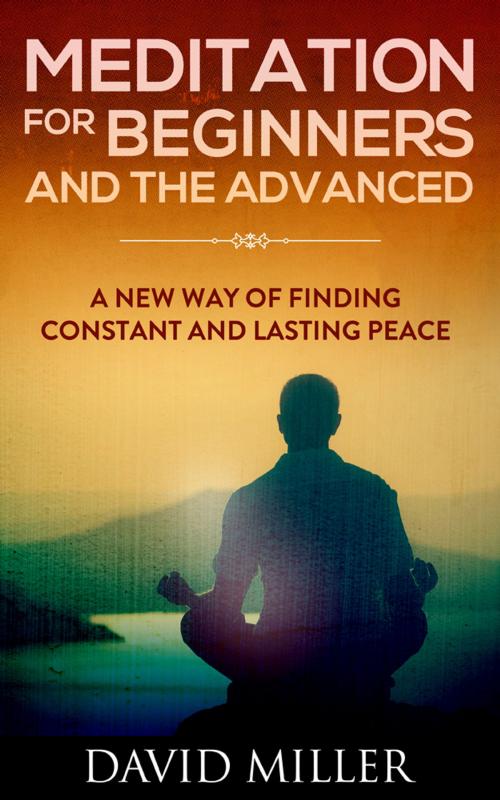Meditation - Beginners and the Advanced A New Way of Finding Constant and Lasting Peace
Nonfiction, Health & Well Being, Self Help, Meditations| Author: | David Miller | ISBN: | 1230002106625 |
| Publisher: | David Miller | Publication: | January 20, 2018 |
| Imprint: | Language: | English |
| Author: | David Miller |
| ISBN: | 1230002106625 |
| Publisher: | David Miller |
| Publication: | January 20, 2018 |
| Imprint: | |
| Language: | English |
Meditation has been invariably described as a specific state of consciousness, which attracts specific modes of perception (Blackstone, 2008). Meditation also has physical dimensions, only coming to the fore through the work of committed enthusiasts. Moreover, meditation is also a practice, in as far as, it requires the practitioner to undertake certain rituals and routines to achieve the desired state of mind (see Figure 1). It involves exceptional training, which harnesses the totality of the powers a human brain can offer. Many who practice meditation have reported incredible advantages, even though the benefits may not be obvious to others. This form of experience allows us to examine and acknowledge the complexities of our being, while detaching from the distractions endemic of modern life. Meditation is not a new concept. What is new is the adaptation for our contemporary lifestyle. Carter et al. (2005) have argued the mere existence of meditation-seekers is an indicator of a contemporary lifestyle that could not provide the answers for which people are looking.
Others argue meditation is all about discipline in a world of self-indulgence and permissiveness. It allows a certain calmness and spirituality sadly lacking in many arenas in which we live our lives. The range and diversity of meditation practices can, sometimes, lead to confusion, particularly if one is a novice. Such diversity may also provide opportunities for people to perceive and use meditation in ways that are very unique to them. This personalization is at the heart of the self-actualizing uptake of alternative therapies and spiritual paradigms (Demarzo, et al., 2014). Ultimately, most people who think about meditation will immediately acknowledge its potential benefits in aiding relaxation; harnessing new energies; a life force, such as Prana or Qi; compassion/empathy for others; generosity/altruism; forgiveness/reconciliation; patience; and love in all its dimensions. These are common to the modern existence, and many people aspire to achieve them, albeit with mixed results. There is also a powerful argument for meditation, because it can achieve concentration and focus; two things spectacularly lacking in contemporary existence.
Meditation has been invariably described as a specific state of consciousness, which attracts specific modes of perception (Blackstone, 2008). Meditation also has physical dimensions, only coming to the fore through the work of committed enthusiasts. Moreover, meditation is also a practice, in as far as, it requires the practitioner to undertake certain rituals and routines to achieve the desired state of mind (see Figure 1). It involves exceptional training, which harnesses the totality of the powers a human brain can offer. Many who practice meditation have reported incredible advantages, even though the benefits may not be obvious to others. This form of experience allows us to examine and acknowledge the complexities of our being, while detaching from the distractions endemic of modern life. Meditation is not a new concept. What is new is the adaptation for our contemporary lifestyle. Carter et al. (2005) have argued the mere existence of meditation-seekers is an indicator of a contemporary lifestyle that could not provide the answers for which people are looking.
Others argue meditation is all about discipline in a world of self-indulgence and permissiveness. It allows a certain calmness and spirituality sadly lacking in many arenas in which we live our lives. The range and diversity of meditation practices can, sometimes, lead to confusion, particularly if one is a novice. Such diversity may also provide opportunities for people to perceive and use meditation in ways that are very unique to them. This personalization is at the heart of the self-actualizing uptake of alternative therapies and spiritual paradigms (Demarzo, et al., 2014). Ultimately, most people who think about meditation will immediately acknowledge its potential benefits in aiding relaxation; harnessing new energies; a life force, such as Prana or Qi; compassion/empathy for others; generosity/altruism; forgiveness/reconciliation; patience; and love in all its dimensions. These are common to the modern existence, and many people aspire to achieve them, albeit with mixed results. There is also a powerful argument for meditation, because it can achieve concentration and focus; two things spectacularly lacking in contemporary existence.















